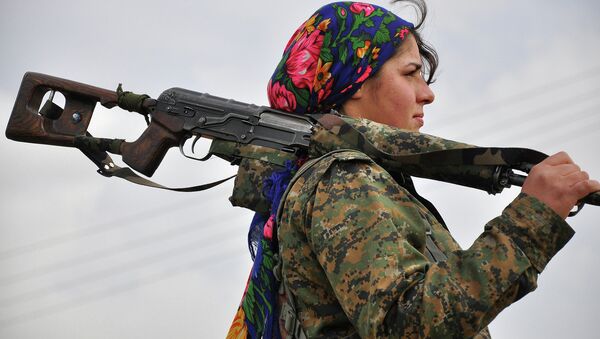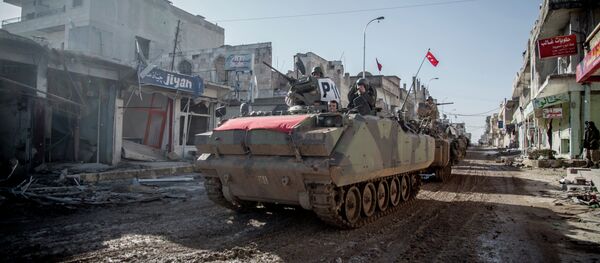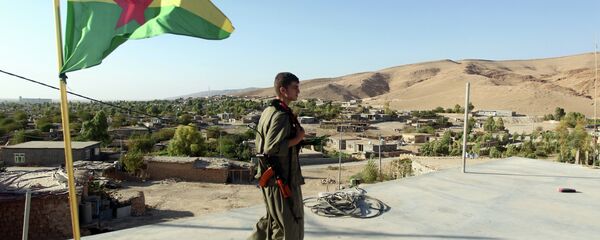WASHINGTON (Sputnik) — Turkey’s decision to open Incirlik airbase to US aircraft and create a safe-zone in Syria is aimed at undermining the Kurdistan Workers’ Party (PKK) and the gains of its Syrian affiliate, the YPG, more than fighting the ISIL, experts told Sputnik.
“Turkey is not so much worried about the Islamic State, but more about the PKK. Turkey is planning to stop YPG/PKK expansion in Syria by creating a safe haven and supporting rebel groups in the Aleppo countryside, and bombing the PKK in Qandil mountains is a warning to the PKK,” Jamestown Foundation analyst Wladimir van Wilgenburg said on Wednesday.
On Friday, Turkey launched airstrikes on the PKK bases in Iraqi Kurdistan, putting in jeopardy a two-year ceasefire with the group amid peace negotiations. The airstrikes came in response to a series of PKK attacks on Turkish police after an ISIL suicide bomber killed 32 leftist and Kurdish activists in Suruc, Turkey earlier last week.
As part of the plan, the United States and Turkey are set to create a “safe-zone” for moderate Syrian rebels. The area is along an ISIL-controlled stretch of territory inside Syria separating the Syrian Kurdish cantons of Jazeera and Kobane in northeast Syria with Afrin in the west.
“Turkish President Recep Tayyip Erdogan wants to kill three birds with one stone by giving United States and coalition access to use Incirlik airbase,” Kurdish Policy Foundation analyst Kamal Chomani told Sputnik.
Chomani explained that Ankara wants to prevent the Syrian Kurds from uniting the cantons, which would create a Kurdish-controlled zone along the Turkish-Syrian border that could inspire Kurds in Turkey, who seek greater cultural and political rights.
The second reason, he went on, is that Turkey wants to be “part of reshaping Syria in the post-Assad regime,” and, thirdly, Ankara seeks to attack the PKK.
“We all know none of Turkish assaults and offensives against PKK has ever been effective, but Erdogan is doing it now to pressure PKK to compromise and push HDP [legal pro-Kurdish party] to support Erdogan’s AKP party, if not to win the hearts of Turkish nationalists and weaken HDP so as to prepare for early elections,” Chomani said.
The pro-Kurdish HDP won 13 percent of the votes in Turkish elections on June 7. The AKP failed to win a majority in the elections, meaning if a coalition government is not formed early parliamentary elections will take place. Under Turkey’s electoral laws, if the HDP does not pass a 10 percent election threshold nearly all of its seats will go the AKP.
Turkey considers the PKK and its Syrian affiliate, the YPG, a terrorist threat equal to the ISIL. However, the United States recognizes the PKK as a terrorist organization but not the YPG, arguing there is an organizational separation between the two groups and that the Syrian Kurds are committed to a united Syria.



